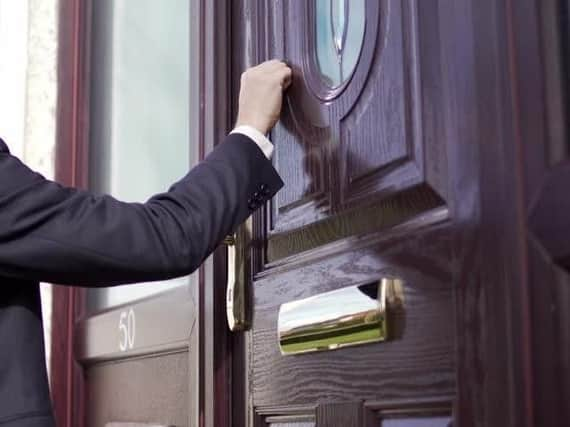Sharp rise in use of bailiffs to collect council tax debt in Preston


The city upped its calls to bailiffs to gather debts from individuals and businesses between 2016/17 and 2018/19 to a total of 4,495 occasions.
Figures show that it is largely council tax debt in Preston which is driving up the use of bailiffs by the city’s authority.
Advertisement
Hide AdAdvertisement
Hide AdThe council has defended the number arguing that with the Government’s austerity programme the council had a “duty“ to recover any money owed.
While in the financial year of 2016/17 PCC used bailiffs to chase missing council tax payments on 3,192 occasions the figure increased to 3,994 in 2018/19.
The Money Advice Trust (MAT), which runs National Debtline and Business Debtline, made the findings after receiving freedom of information (FOI) responses from 367 local authorities.
Bailiffs, also known as enforcement agents, can visit a property to remove and sell goods to repay certain debts, including council tax arrears, parking notices and other debts owed to councils.
Advertisement
Hide AdAdvertisement
Hide AdOf the overall 4,495 times debt was referred to bailiffs by the council in Preston 3,994 occasions were over council tax debt, 189 for parking, 309 for business rates and three for commercial rents.
The council has cut the times it uses bailiffs for both missing parking payments and unpaid business rates.
Deputy chief executive and director of Customer Services, Neil Fairhurst, said: “Most people pay their council tax on time.
“It helps to pay for vital public and local services including schools, roads, social care, Police and Fire Service.
Advertisement
Hide AdAdvertisement
Hide Ad“If people don’t pay then these services suffer and this affects us all - especially the vast majority of us who do pay.
“The council has flexible payment options and we do help people who get into difficulty paying their taxes.
“Yet, when people blatantly do not pay, make no attempt to pay or even refuse to answer any communication about paying their taxes - then we have no option but to begin recovery proceedings.
“At this stage, most people do end up making arrangements to pay.
Advertisement
Hide AdAdvertisement
Hide Ad“Recovery has also increased due a rise in the number of chargeable dwellings across the city as a whole.
“The Government’s austerity programme has led to a substantial reduction in funding and as a council we must strive to do more for less.
“This means that we have a duty to try to recover all money owed to the council, including council tax, parking fines, business rates and commercial rents.”
Meanwhile figures from Chorley Council and South Ribble Council show that both authorities had seen their use of bailiffs drop - Chorley’s by five per cent to 2,971 occasions in the same time period and South Ribble by two per cent to 1,656 occasions.
Advertisement
Hide AdAdvertisement
Hide AdA spokesman from Bradford-based debt charity Christians Against Poverty (CAP) said: “Our evidence shows that it is especially stressful to owe a council or a Government department.
“They can seem faceless, not especially approachable and the punishments are potentially more severe. People are still jailed for Council Tax and the threat of that can be considerable.
“Most of the debt clients we help are on a very low income and a small change in circumstances has begun a downward spiral in their finances which is hard to reverse without specialised help.”
CAP advice for anyone suffering with debt problems is to seek help from a free debt agency and go to capuk.org/connect/keep-up-to-date/blog/theres-a-bailiff-at-my-door-what-do-i-do